I am not kidding. Teaching kids about organic food might require something huge and eye opening.
Dropping a watermelon worked for us.

Teaching Kids about Organic Food
We (and by “we” I mean me and my three boys) had arrived at the grocery store only moments before the incident. After we bolted to the organic food section for my toddler to grab a Sprout® Baby/Toddler food snack and stock up on his meals for the week (I am not kidding, this stop is always our first. See this baby food post for reasons why.), we headed to the perimeter of the store (that is what Michael Pollan's food rules taught me about grocery stores – avoid the inside aisles & stay on the perimeters!).
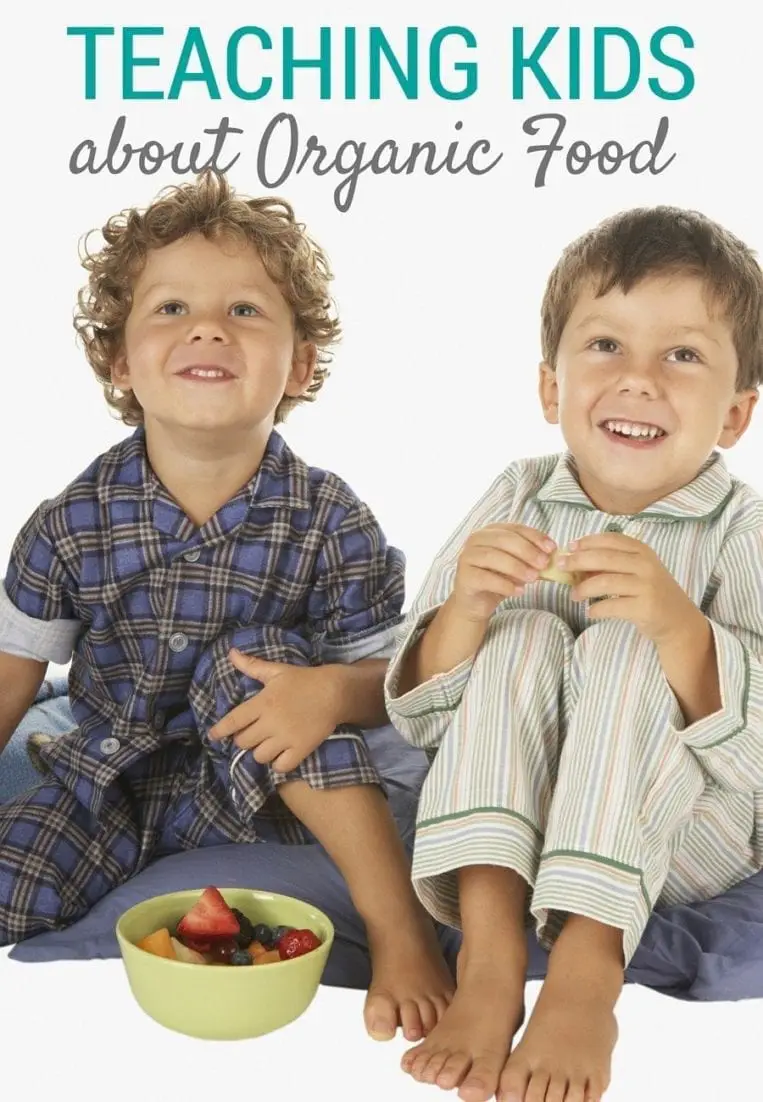
I mumbled something about eating healthy and organic, giving our bodies fuel…yada, yada…when I hear my four year old shout, “Mom, I got a watermelon! It is organic! It is heeeeaaaaavvvvvyyyy….” (insert slow motion turn of the parent – me – and several store employees lunging for the flying watermelon).
Poor thing.
His face as bright as the inside of the watermelon splattered on the floor apologized before his mouth opened to speak words.
“I was trying to help…it was an accident.” I nodded, yes, yes, I know, my sweet boy.
The next thing that happened blew my mind.
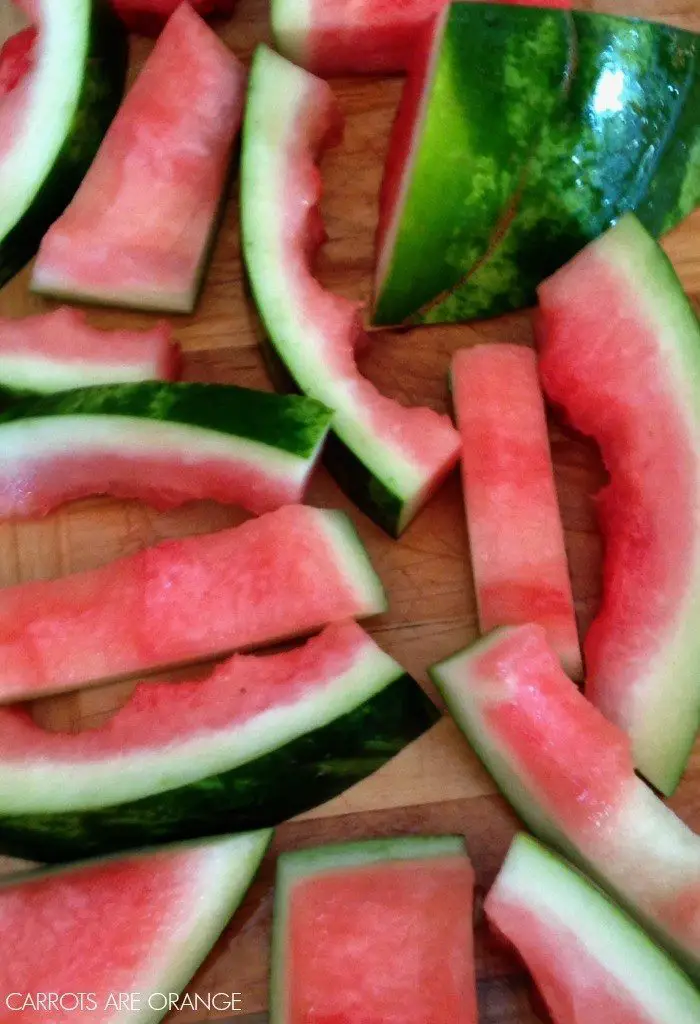
A grocery store employee, who might as well been wearing a super hero cape, swooped in not only with cleaning gear but with a smile. He picked up half of the watermelon, grabbed a knife (I am not entirely sure where he had the knife hidden), and began cutting pieces for my sons. As he worked, he enlightened my sons on not only the benefits of watermelon but the benefits of organic watermelon.
True story.
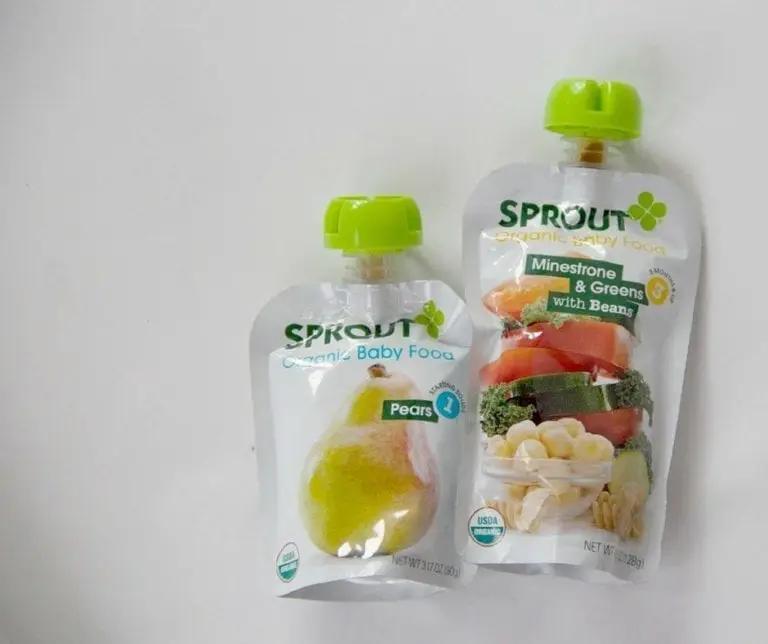
I know, we can't all have a bursting watermelon teaching moment, but we can invite the conversation in hands on ways.
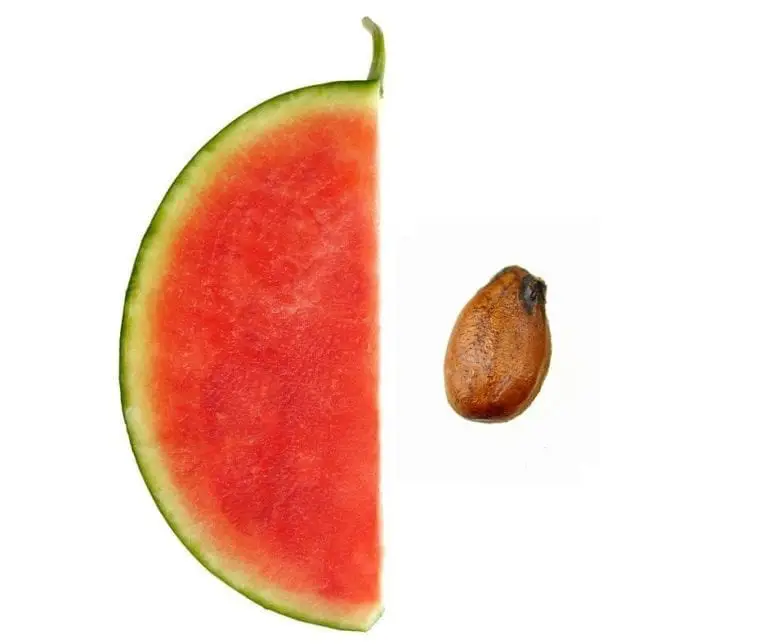
Questions to consider asking children about organic food include:
- Where does our food come from?
- What does the nutrition label say about the ingredients?
- Where was it made?
- What are the ingredients?
- Where did these ingredients come from?
- Who harvested the ingredients? Where? When?
Of course, one of the best ways to teach kids about organic food is to ask them how they feel in “real time” by asking questions like “how does your body feel?”
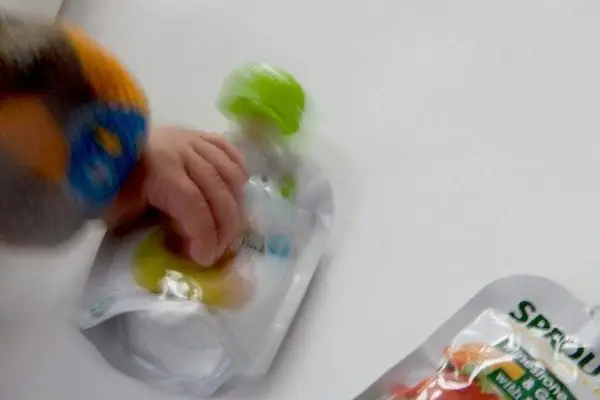
My toddler doesn't have the words to describe how his body feels after eating organic (like his favorite Sprout® Organic food) but I can tell and so can his big brothers. He is happier and has loads of energy, the good kind of energy. You can tell by the action image above – as I was trying to take a few shots of the product – that my littlest guy can't keep his hands off the stuff. Beautiful packaging + yummy food = happy toddler.
I hope you found this lesson idea inspirational. Teaching kids about food and how their bodies work is important and can have a huge impact!
Marnie
This is a sponsored conversation written by me on behalf of Sprout® Organic Baby Foods. The opinions and text are all mine.
